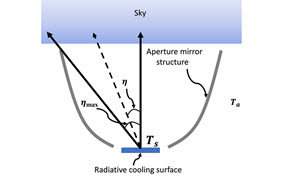Photonics21 commits to partnership
Photonics21 created a new entity for a public-private partnership funded by Europe’s Horizon 2020 research and innovation plan.
Photonics21 has created a new entity for a public-private partnership (PPP) funded by the European Commission’s Horizon 2020 research and innovation plan.
 The Board of Stakeholders in April voted overwhelmingly to establish the “Photonics PPP Association,” a legal vehicle needed to sign a contract with the EC, at its annual meeting in April in Brussels.
The Board of Stakeholders in April voted overwhelmingly to establish the “Photonics PPP Association,” a legal vehicle needed to sign a contract with the EC, at its annual meeting in April in Brussels.
Photonics21 president and Jenoptik CEO Michael Mertin and the Photonics21 executive board also handed over their new multiannual strategic roadmap, “Towards 2020 – photonics driving economic growth in Europe,” to EC vice president Neelie Kroes in April at the Photonics21 annual meeting, which was sponsored by SPIE Europe and other organizations.
Mertin said the plan outlined in that roadmap “should be a basis for the economic recovery of Europe,” and provide an approach aimed squarely at using technological innovation to generate economic growth.

SPIE Executive Director Eugene Arthurs, a member of the Photonics21 Board of Stakeholders, said the roadmap is the latest of many strategic actions that the coalition of industry, academia, and policy-makers has taken “to help strengthen the economy and improve living conditions and opportunities through the advancement of photonics technologies.
“The hard work and visionary insights that have gone into this report and its predecessor documents have created a positive force for growth through successful, game-changing photonics projects throughout the continent,” Arthurs said.
Kroes emphasized her commitment to keeping photonics — recognized by the EC as one of six Key Enabling Technologies (KETs) — as an area of strength for European industry. “This proposal is ambitious and strategic; not a plan to subsidize an industry, but to strengthen Europe’s innovation potential,” she said.
The new roadmap includes the original pledge by Photonics21 to spend €5.6 billion on the PPP, provided that the EC commits €1.4 billion.

Noting that the PPP idea has been widely endorsed by the photonics community in Europe, the roadmap states that the PPP could bridge the so-called “valley of death” fate of much publicly-funded technological development that does not translate to direct economic or societal benefit.
“For photonics to yield its full potential as an enabling technology,” it says, “it will be critical that the inherent synergies within the sector are exploited through integrated research aimed towards identified market solutions, rather than towards isolated components or applications.”
Kroes said more than 60 companies and research institutes had already signed up for the PPP and that she was looking forward to more doing so. “Photonics makes ultra-high-speed fiber broadband possible; it is the key to the 3D printing revolution. …It is the raison d’être of 5000 of Europe’s most innovative SMEs,” she said. “I want to make sure those companies have the R&D support they need to lead the €300 billion global photonics market, improve lives, and support new and existing jobs.”
Also at the meeting, Kroes appointed SPIE member Jana Huisman, an 18-year-old physics and mathematics undergraduate at the University of Bonn, as Young Ambassador for Photonics Education.
With political battles remaining to be fought over the EU’s spending plan for 2014-2020, the final budget for Horizon 2020, which would effectively fund the PPP, has yet to be decided.
The original proposal of an €80 billion real-terms budget for Horizon 2020 has been rebuffed by the European Council, though much of the current argument revolves around the wider EU.
EC director for components and systems Khalil Rouhana said that the final Horizon 2020 budget should be “at least” €70 billion in real terms, a level that would represent a 30% increase compared with the current Framework Programme Seven (FP7) spending.
A final decision on the Horizon 2020 budget is expected by the end of 2013. It should ensure at least €7 billion in funding for the information and communications technology (ICT) spending pot, of which €1.4 billion would likely be allocated to the key enabling technologies of photonics, microelectronics, and nanoelectronics.
A high level political "agreement in principle" of about €70 billion for the program was approved in late June. The Horizon 2020 budget now goes to the European Council and Parliament for approval.
–Mike Hatcher is editor of optics.org.
- Have a question or comment about this article? Write to us at spieprofessional@spie.org.
- To receive a print copy of SPIE Professional, the SPIE member magazine, become an SPIE member.



